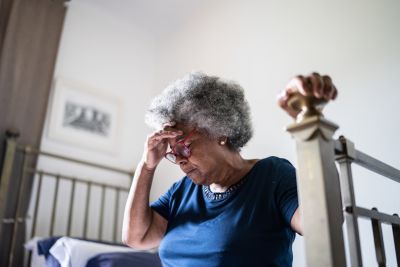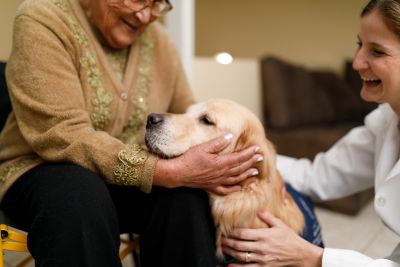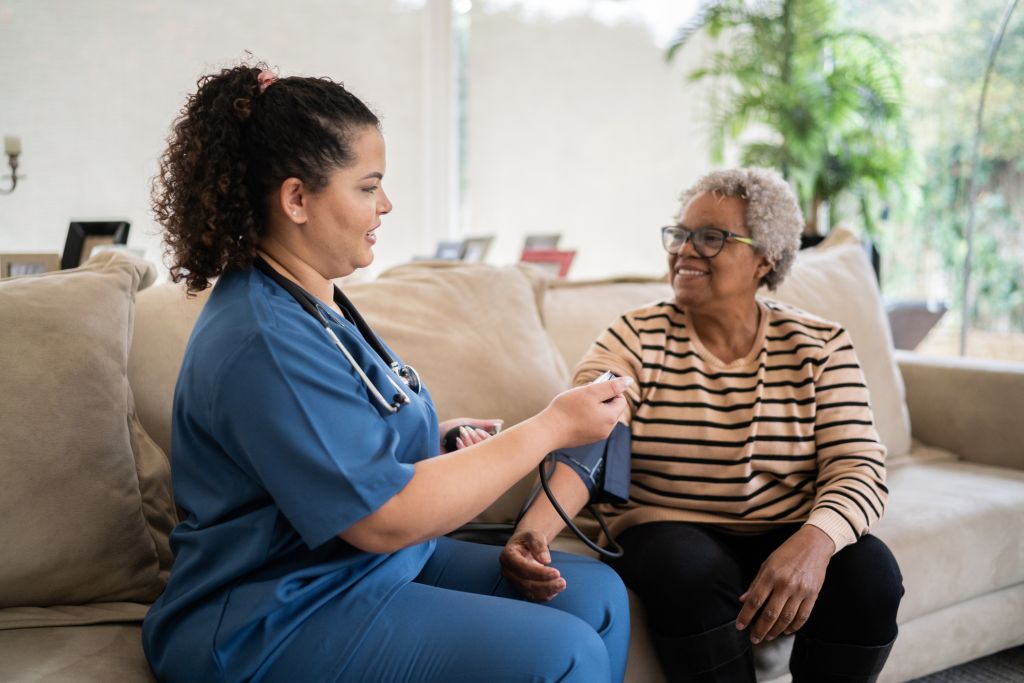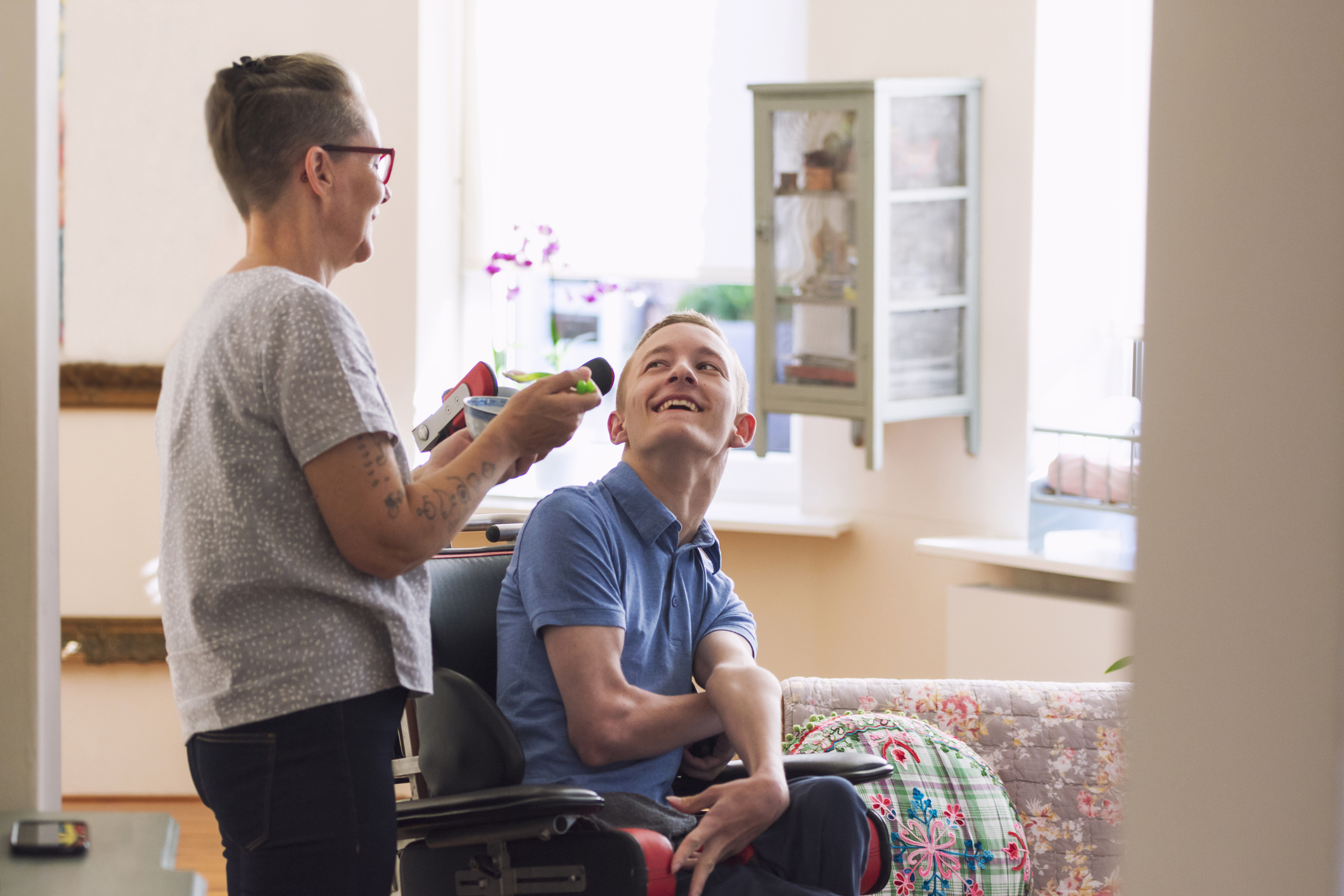Alzheimer’s disease, a type of dementia, is a progressive neurological disorder that affects nearly 7 million people in the United States. As Alzheimer’s disease advances, families often face difficult healthcare decisions. Our hospice care professionals support many families in making the decision about when to consider hospice for patients with Alzheimer’s.
Signs That It May Be Time for Hospice Care
Alzheimer’s disease and dementia comes with cognitive decline, memory loss, and loss of independence. As this disease progresses, patients may require more support and care, impacting the quality of life for both patients and their families. Signs that it may be time for hospice care include:
- Significant cognitive decline
- Frequent hospitalizations
- Weight loss and poor nutrition
- Dependence on caregivers
- Pain and discomfort
Hospice Benefit Qualifiers for Alzheimer’s & Dementia Patients
To be eligible for hospice benefits, patients with Alzheimer’s disease or dementia must identify with the following qualifiers:
- Dependence on others for assistance with activities of daily living (ADL)
- Inability to walk without assistance
- Speaking only a few words and phrases
- Continuous anxiety and stress
- Falls
- Multiple hospitalizations, ER trips
- Infections
- Eating problems
- Incontinence
Benefits of Hospice Care for Alzheimer’s Patients
Hospice care is designed to provide comprehensive care for individuals during the end of their life. Hospice focuses on comfort and quality of life rather than treatments for conditions like Alzheimer’s disease. Hospice can provide various benefits for individuals who have a life expectancy of 6 months or less. Benefits of hospice care for patients with Alzheimer’s disease include:
- Pain & symptom management
- Emotional & spiritual support
- Specialized therapy (aromatherapy, massage therapy, music therapy, and pet therapy)
- Caregiver relief
- Grief & bereavement services
Residential Hospice for Alzheimer’s Patients
Residential Hospice’s program for Alzheimer’s patients, PEACE (Program for Easing Anxiety and Cultivating Engagement) helps alleviate distressing symptoms and enhance quality of life for both hospice patients and their families. Residential Hospice offers at-home hospice care in Illinois, Kansas, Michigan, Missouri, Ohio, and Pennsylvania.
This blog is educational and informative, please consult with your medical doctor to learn more about hospice and if it is appropriate for your diagnosis.













